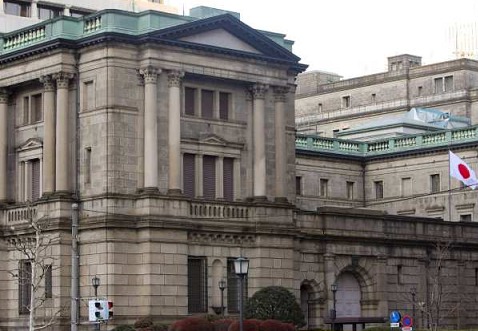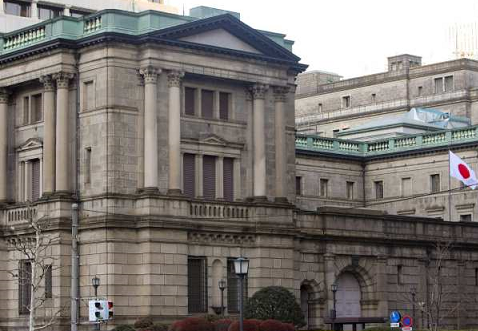
Japan’s prime Minister, Shinzo Abe has been in highlights due to his implementation of strong and bold policies to deal with the nation’s economic difficulties. Japan’s sluggish growth in the fourth quarter 2014 was far below the expectations. This signals that the nation is emerging from the recession much slower. The poor economic indicators can put pressure on the Bank of Japan to launch more fiscal reforms in order to boost the third largest economy of the world.
Japanese finance minister advised Bank of Japan to consider the risk of persistent steeply declining Yen while expanding the stimulus program. The implications of a weaker Yen are quite mixed. The currency started to weaken even prior to Shinzo Abe's reelection as Prime minister in December 2012, when Yen started dropping from about 80 yen against US dollar to 98 Yen just before the launch of quantitative easing program in April 2013. As a result of further expansion of the QE program in October 2014, the currency further dipped to nearly 119.75 in November. Japan’s growth in the first quarter of 2014 was also tepid. Although the depreciation of Yen from 80 to 100 was appreciated by many but its further plunge to 120 s experiencing mixed reactions. It should be noted that these decline had decayed the purchasing capacity of Japanese consumers.
A rise in consumer taxes in April 2014 pushed the economy towards technical recession, which the country is still struggling from. But Japan’s recovery from the recession is tepid as the impact of fiscal reforms are limited. However, the impact of sales tax is amplified by many people. The implication of tax hike was little.
Highly improved healthcare facilities have resulted in long life for Japanese while years of extraordinarily low birth rates has therefore lessened the number of young generations into the workforce. Japan consists of more than 30% of ageing population. By 2030, there will be 2 working people as against 1 retiree. This implies significant strains over the finance and economy of the country.
The economy bounced back witnessing 2 quarter of contraction which was triggered by rise in consumer’s tax from 5% to 8% in April 2014. Japan expanded at 0.4% of annualized rate during the fourth quarter 2014. However, many people criticized BOJ’s surprising decision of expanding the fiscal stimulus program in October 2014 that prompted steep slump in Yen that raised import costs which in turn pulled down the disposable income for households. Moreover, the central bank should not be pressing hard to target 2% inflation rate as the plummeting oil price could slow down inflation in near term.
The purchasing power of Japanese is persistently dropping as wage hikes failed to match up the rising inflation. As a result, the adjusted wage for increased prices dropped for consecutive 19 months through January. Eventhough the inflation is easing due to significant fall in oil prices yet there is no change in the continuous trend of rising consumer prices.
Japanese finance minister advised Bank of Japan to consider the risk of persistent steeply declining Yen while expanding the stimulus program. The implications of a weaker Yen are quite mixed. The currency started to weaken even prior to Shinzo Abe's reelection as Prime minister in December 2012, when Yen started dropping from about 80 yen against US dollar to 98 Yen just before the launch of quantitative easing program in April 2013. As a result of further expansion of the QE program in October 2014, the currency further dipped to nearly 119.75 in November. Japan’s growth in the first quarter of 2014 was also tepid. Although the depreciation of Yen from 80 to 100 was appreciated by many but its further plunge to 120 s experiencing mixed reactions. It should be noted that these decline had decayed the purchasing capacity of Japanese consumers.
A rise in consumer taxes in April 2014 pushed the economy towards technical recession, which the country is still struggling from. But Japan’s recovery from the recession is tepid as the impact of fiscal reforms are limited. However, the impact of sales tax is amplified by many people. The implication of tax hike was little.
Highly improved healthcare facilities have resulted in long life for Japanese while years of extraordinarily low birth rates has therefore lessened the number of young generations into the workforce. Japan consists of more than 30% of ageing population. By 2030, there will be 2 working people as against 1 retiree. This implies significant strains over the finance and economy of the country.
The economy bounced back witnessing 2 quarter of contraction which was triggered by rise in consumer’s tax from 5% to 8% in April 2014. Japan expanded at 0.4% of annualized rate during the fourth quarter 2014. However, many people criticized BOJ’s surprising decision of expanding the fiscal stimulus program in October 2014 that prompted steep slump in Yen that raised import costs which in turn pulled down the disposable income for households. Moreover, the central bank should not be pressing hard to target 2% inflation rate as the plummeting oil price could slow down inflation in near term.
The purchasing power of Japanese is persistently dropping as wage hikes failed to match up the rising inflation. As a result, the adjusted wage for increased prices dropped for consecutive 19 months through January. Eventhough the inflation is easing due to significant fall in oil prices yet there is no change in the continuous trend of rising consumer prices.


















